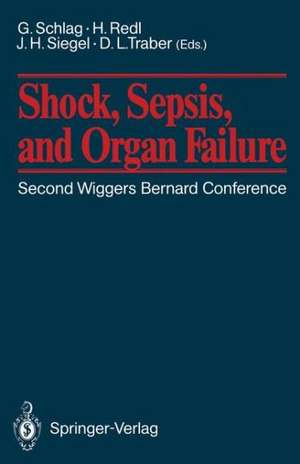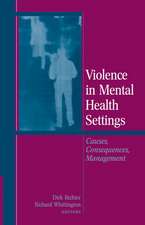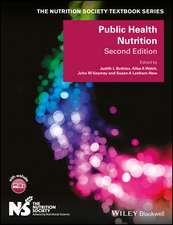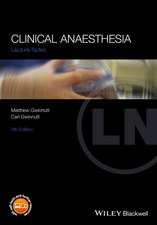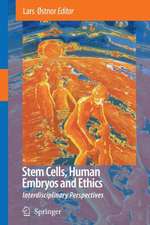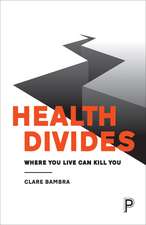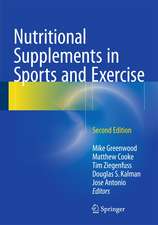Shock, Sepsis, and Organ Failure: Third Wiggers Bernard Conference — Cytokine Network
Editat de Günther Schlag, Heinz Redl, Daniel Traberen Limba Engleză Paperback – 6 mai 1993
| Toate formatele și edițiile | Preț | Express |
|---|---|---|
| Paperback (2) | 721.05 lei 43-57 zile | |
| Springer Berlin, Heidelberg – 18 ian 2012 | 721.05 lei 43-57 zile | |
| Springer Berlin, Heidelberg – 6 mai 1993 | 722.84 lei 43-57 zile |
Preț: 722.84 lei
Preț vechi: 760.88 lei
-5% Nou
Puncte Express: 1084
Preț estimativ în valută:
138.34€ • 144.04$ • 116.91£
138.34€ • 144.04$ • 116.91£
Carte tipărită la comandă
Livrare economică 10-24 martie
Preluare comenzi: 021 569.72.76
Specificații
ISBN-13: 9783540553397
ISBN-10: 3540553398
Pagini: 428
Ilustrații: X, 416 p. 45 illus.
Dimensiuni: 155 x 235 x 22 mm
Greutate: 0.59 kg
Editura: Springer Berlin, Heidelberg
Colecția Springer
Locul publicării:Berlin, Heidelberg, Germany
ISBN-10: 3540553398
Pagini: 428
Ilustrații: X, 416 p. 45 illus.
Dimensiuni: 155 x 235 x 22 mm
Greutate: 0.59 kg
Editura: Springer Berlin, Heidelberg
Colecția Springer
Locul publicării:Berlin, Heidelberg, Germany
Public țintă
ResearchDescriere
This book is the result of the 3rd Wiggers Bernard Conference. The Wiggers Bernard Conferences, named after two great physiologists of the past, are biannual gatherings of the leaders in the field of shock. The meetings focus on specific areas of interest, where a lot of new informations is available, but needs to be focused. There are informal presentations during which the seminarian can be intenupted in order to clarify a pat1icular point; formal discussions follow each presentation; these are followed by infOlmal gatherings in which these discussion continue in a very relaxed environment. The 1992 meeting took place in Obermayerhofen, a small but charming castle in the soft green hills of Eastern Styria in the South-Eastern part of Austria. The castle was built in 1130, restored and turned into a hotel in 1977. The renaissance court yard and the generous and exclusive decors make it one of the most beautiful castles in Austria. The frank beauty and hospitality of this area acted as a catalyst to crystalize the thoughts of this interdisciplinary group of scientists as they discussed new findings in the cytokine area.
Cuprins
Cytokine Cascades in Sepsis.- Tumor Necrosis Factor as a Mediator of Sepsis.- Discussion.- A Role for Interleukin-1 in Septic Shock.- Discussion.- Interleukin-6 as a Mediator of the Systemic Inflammatory Response.- Discussion.- E-Selectin, Internalization and Release.- Discussion.- Cytokines in Hemorrhage, Trauma, and Inflammation.- Alterations in Inflammatory Cytokine Production Following Hemorrhage and Resuscitation.- Discussion.- Trauma and Cytokines.- Discussion.- Quantifying the Severity of the Human Response to Injury and Sepsis as a Guide to the Interpretation of Phatophysiologic Cytokine Effects.- Discussion.- The Role of Cytokine Networks Mediating Inflammation and Ischemia-Reperfusion Injury.- Discussion.- The Role of Cytokines and Adhesion Molecules in Lung Inflammation.- Discussion.- Cytokine Response to Thermal Injury.- Discussion.- Cytokines in Gram-Positive Bacteremia.- Mechanism and Therapy of Gram-Positive Bacteremia (Sepsis) in the Nonhuman Primate: Role of Cytokines.- Discussion.- Cytokines in Gram-Positive Bacteremia.- Discussion.- Cytokines as Therapeutic Measures.- Tumor Necrosis Factor-? and Interleukin-1 Desensitization: Clinical Utility and Possible Mechanisms.- Discussion.- Interleukin-1 and its Receptor Antagonist as Candidate Therapeutic Agents for Severe Infections.- Discussion.- Cytokines in Gram-Negative Bacteremia.- The Role of TNF in Gram-Negative Sepsis in Baboon.- Discussion.- Cytokines in Overwhelming Gram-Negative Bacteremia.- Discussion.
Textul de pe ultima copertă
New findings involving the brain in traumatic and septic shock and after brain injury are reported in this book, including pathophysiological and pathohistological results. An experimental and clinical approach to treatment is presented together with specific results obtained from the encephalogram and from histopathological study with regard to the immunohistochemistry of toxic lipid peroxidant products. The latest results of clinical and experimental pathophysiology in inflammatory processes after traumatic brain injury and the therapeutic effects of hypertonic fluid therapy are also discussed..
